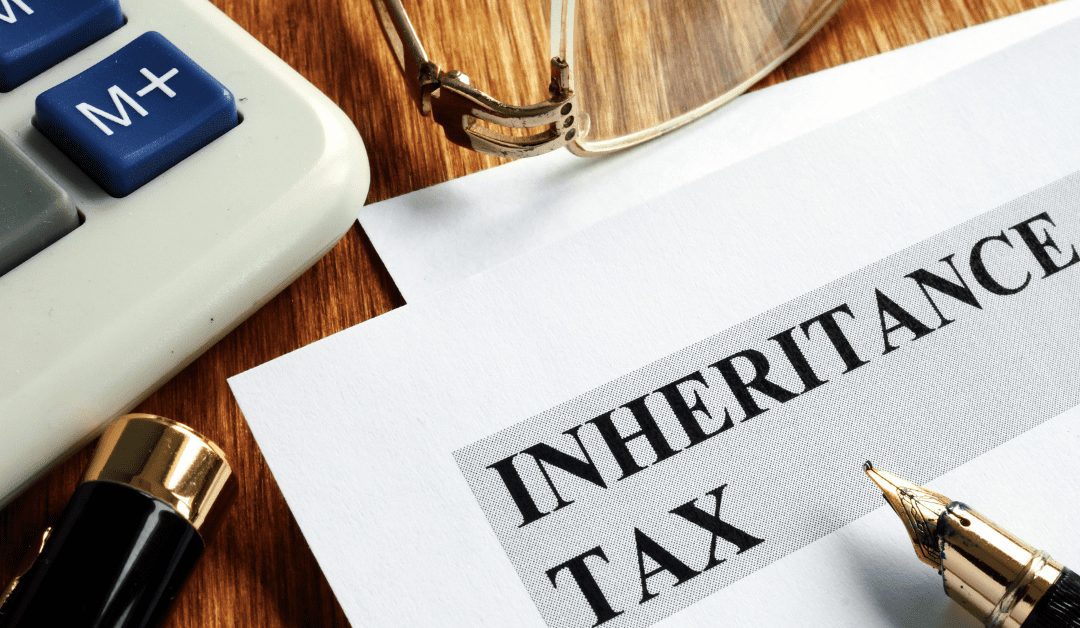What is Inheritance Tax?
Main Residence Nil Rate Band Explained
Additional Allowances
Gifts the 7 year rule
Working out if Inheritance Tax is due on an estate
How much Inheritance Tax is paid?
Who pays inheritance tax?
What can be done if funds are not sufficient to pay the first instalment of inheritance tax?
How can Howard Wright help me and my inheritance tax liability?
What is Inheritance tax?
Inheritance Tax is one of those taxes that many of our clients wish to explore as taking action early enough can mean that you are able to reduce or even completely eradicate the tax liability. Even if you can’t reduce your tax liability you could utilise policies that will pay the tax for you on your death.
Let’s first look at what inheritance tax is. Inheritance tax becomes due when your estate (property and possessions) is worth more than the Inheritance Tax Threshold (allowance) on death. The current threshold is £325,000 per person which can be used to offset the value of any assets within the estate. This means that if your estate is below £325,000 there would be no tax liability on death. If your estate is over the threshold only the amount over the threshold would be subject to inheritance tax.
There is no Inheritance Tax due on death if all assets pass to a spouse. In addition, if all assets pass to a spouse, they will also inherit their deceased partner’s allowance. This means that when starting to look at planning opportunities a married couple has £650,000 of allowances that can be used.
Main Residence Nil Rate Band (RNRB) Explained
In addition to the £325,000 allowance per person as detailed above, you may also have an additional allowance that can be offset against the main residence, known as the Main Residence Nil Rate Band of up to £175,000 per person if the following criteria are met;
- The individual dies on or after 6 April 2017
- The individual owns a home that is or has been used as a main residence, or a share of one so that it’s included in their estate
- The individual’s direct descendants such as children or grandchildren inherit the home or a share of it
- value of the estate isn’t more than £2 million
As with the standard inheritance tax allowance, if your property or share of your property passes to your spouse, they also inherit your allowance. As such when looking at planning opportunities, this means a married couple has a main residence nil rate band of up to £350,000. This can also be done if the first of the couple died before 6 April 2017, even though the RNRB wasn’t available at that time.
I say “up to” here as it is worth noting that this specific allowance can only be offset against the main residence. If the value of the main residence is less than £175,000 or £350,000 for the married couple, then the allowance is capped at the property value. There is an exception to this however, if you have downsized to a less valuable home or sold or given away your home after 7 July 2015 you can still claim the allowance against the previous more expensive property if this is more beneficial.
For estates valued at more than £2 million however, the RNRB (and any transferred RNRB) will be gradually withdrawn or tapered away. For every £2 the estate is over the £ 2 million value, £1 of the Main Residence Nil Rate Band is lost. This means if the estate is valued at £2,350,000 an individual would lose the entire RNRB. If you are a married couple the estate would need to be over £2,700,000 for the RNRB to be lost.
The RNRB only applies to the estate of a person who’s died. It doesn’t apply to gifts or other transfers made during a person’s lifetime. This includes gifts that become taxable because they’ve been made within 7 years of a donor’s death.
When someone gives away their home and continues to benefit from it, for example, by living in the property rent-free, HMRC treats that home as being included in the estate. So the RNRB may be available for that home if it’s given away to a direct descendant.
Additional allowances
There are other allowances and exemptions available to individuals both whilst alive (such as certain gifts) and on death (such as business property relief, agricultural relief, Woodland relief, and heritage relief). These reliefs are worthy of an article in their own right.
Gifts: the 7-year rule
We often get asked by our clients if it is possible to make a gift during their lifetime and if they do will it be subject to inheritance tax? The answer to this will depend upon the value of this gift, any previous gifts within the last 7 years and if this is gifted either directly to a beneficiary / to a bare trust or into a discretionary trust. The depth of this is beyond the scope of this article but is discussed in a future article.
Generally speaking, if you give a gift directly to a beneficiary or into a bare trust there is usually no immediate liability to tax. If you live for 7 years after making the gift to someone, it’s exempt from Inheritance Tax regardless of the value. This is called a ‘potentially exempt transfer’. If you passed away prior to the 7 years the value is added back into your estate for the inheritance tax calculation. If the gift was in excess of your inheritance tax allowance the amount in excess of the allowance may qualify for a reduced tax rate between 3-7 years from the date of the gift.
If you gift to a discretionary trust, the rules are different, this is classed as a chargeable lifetime transfer. If the total chargeable lifetime transfers in the last 7 years, when added together, exceed the inheritance tax allowance, currently £325,000, an immediate charge of 20% is due on the amount over the allowance. If you then subsequently pass away within 7 years of the chargeable lifetime transfer, this will again be added back into the estate. The estate over the allowances will be taxable at the usual 40% tax rate however, any lifetime tax at 20% paid on chargeable lifetime transfers is available as a credit against the recalculated IHT liability. Like with a potentially exempt transfer, you may be able to reduce the tax due if the death was 3-7 years after the gift.
I will note with gifts, that if you continue to benefit from something you have given away, it will not be exempt from Inheritance Tax and is called a ‘gift with reservation of benefit’.
Working out if Inheritance Tax is due on an estate
To work out if Inheritance Tax is due on the estate you need to do the following:
- Add up the value of everything in the estate (including gifts made in the 7 years before the person died)
- Take away any debts, bills and funeral expenses
Any amount above the available allowances will be liable to inheritance tax.
How much Inheritance Tax is paid?
Once the estate has been valued you will be able to assess what inheritance tax is due, if any. The current rate of Inheritance Tax in the UK is 40% on anything above the threshold. The rate may be reduced to 36% if more than 10% of the estate is left to charity.
Who pays Inheritance Tax?
The inheritance tax liability is usually paid from the estate or via an insurance policy, prior to the remaining assets being distributed to the beneficiaries. If there is a Will this is usually done by the executor, if there is no Will it will be the administrator’s responsibility. You will usually need to pay the tax within 6 months of the date of death. Payments after 6 months may be subject to interest or fines. The inheritance tax liability will need to be paid before you will be issued with the grant of probate to start distributing the assets.
If the estate does not have the liquid assets to pay the inheritance tax liability, HMRC does allow the tax to be paid in installments over a 10 year period. This is limited however to certain estate assets which are.
- land and real property;
- business assets;
- shares which gave the deceased complete control of a company; and
- certain unquoted minority shareholdings (dependent upon specific criteria).
When paying by installments you may find that from 6 months the liability is subject to interest if the asset is land or property, even if it has already been agreed that the liability will be paid installments.
What can be done if funds are not sufficient to pay the first installment of inheritance tax?
If you are unfortunate enough to find yourself in a position where the estate does not have any liquid assets to fund the inheritance tax liability, the executor or the beneficiaries may have to temporarily meet the inheritance tax liability personally, by way of a loan to the estate. If this is not an option, they could use a bank loan to cover the tax liability.
Either of these options will require you to ensure that the terms of the agreement are clear and fair, and you should seek advice as to the suitability of these options in your individual circumstances.
Where executors and beneficiaries are unable to cover the cost of inheritance tax and a bank loan is not an option, HMRC may agree to the issue of a grant of credit. HMRC will require a professional undertaking that inheritance tax will be paid once assets are sold and may even require confirmation that a purchaser has already been found. As such, this option will usually only be available when you have a legal representative acting on your behalf.
How can Howard Wright help me and my inheritance tax liability?
At Howard Wright, we offer a comprehensive estate planning review. We start by assessing your short and long-term objectives and requirements for capital and income. Once we have established the capital and income you require for your objectives, we can then start to establish what your potential inheritance tax liability is and the capacity to gift capital or fund for insurance policies to mitigate this.

Free Financial Review
If you wish to discuss your Estate Planning please contact Ashley Smith one of our Chartered Financial Planners at Howard Wright, you can call him on 0345 688 4939 or you can fill in our enquiry form below, it only takes 20 seconds to complete. We look forward to hearing from you and seeing how Ashley can help.
Disclaimer
This article contains information from sources believed to be reliable but no guarantee, warranty, or representation, express or implied, is given as to its accuracy or completeness. Howard Wright Ltd does not undertake any obligation to update or revise any future statements. Past performance is not a reliable indicator of future results. Investments can go down as well as up and actual results could differ materially from those anticipated. This article is for information purposes only and has no regard to the specific investment objectives, financial situation or particular needs of any person as such, the information contained in this article is not intended to constitute, and should not be construed as, investment or financial advice. Appropriate personalised advice should be taken before entering into any transactions. No responsibility can be accepted for any loss arising from action taken or refrained from based on this publication. Howard Wright Ltd is Authorised and regulated by the Financial Conduct Authority.
